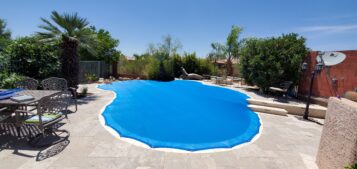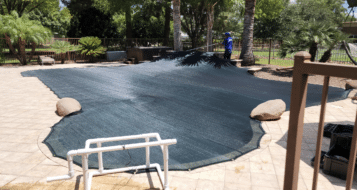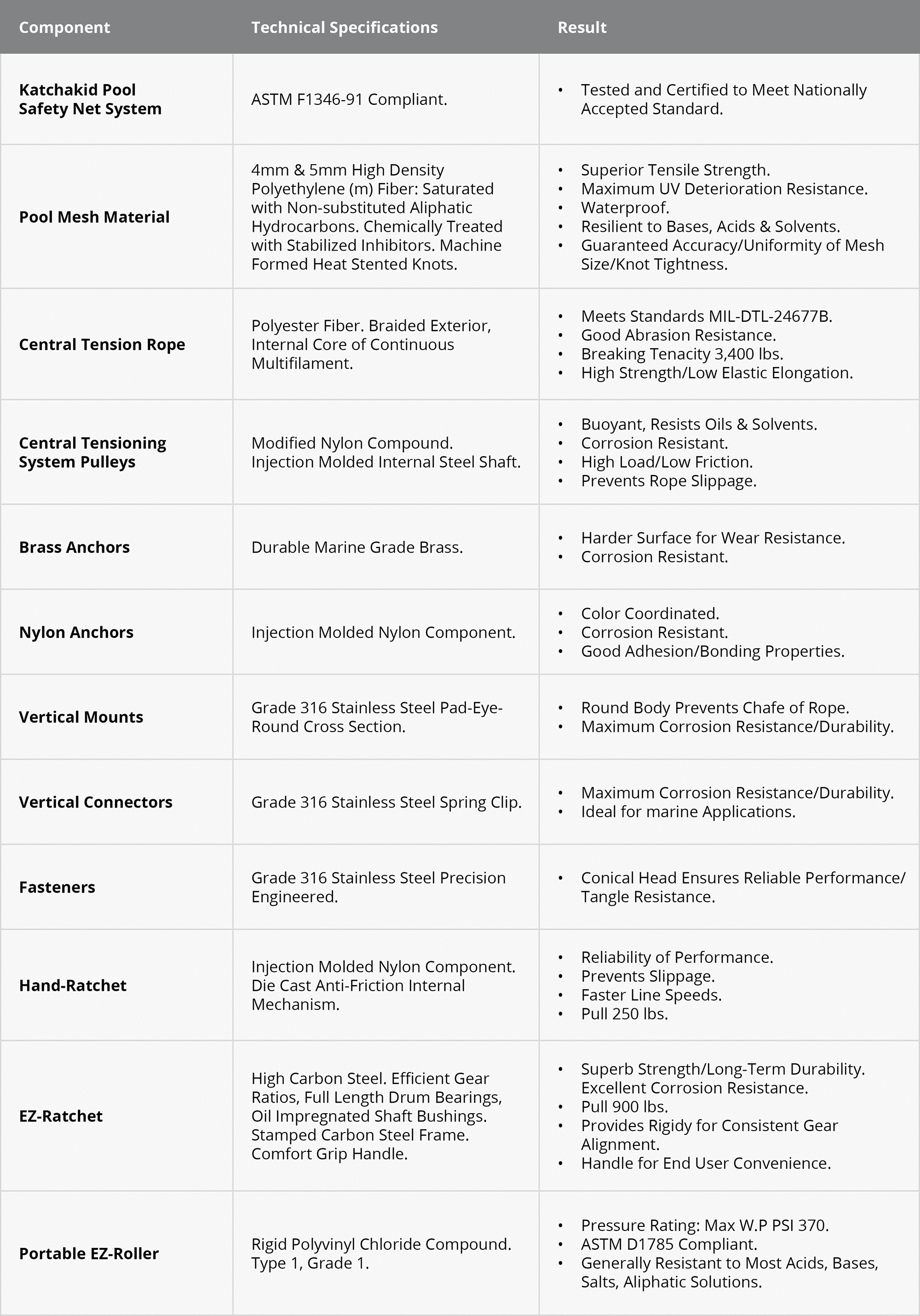Choosing Your Perfect Pool Companion: Mesh or Solid Pool Covers?
With a multitude of pool cover options available, homeowners often find themselves deciding between mesh or solid pool covers. The final selection boils down to your specific pool requirements, local weather conditions, and how you prefer to maintain your pool. Katchaleaf Mesh Debris Covers and traditional vinyl pool covers often emerge as the top contenders in the decision-making process. But how do these two options stack up against each other, and how does Katchaleaf tackle the challenges associated with vinyl covers? Let’s delve into a comprehensive comparison to unravel these questions.
Comparisons:
Weight and Handling
Vinyl Cover: A significant disadvantage of heavy vinyl pool covers is their weight. Most exceed 100 lbs and require at least two people for installation, removal, and storage, adding a layer of complexity to pool maintenance.
Katchaleaf Cover: In stark contrast, the Katchaleaf Debris Cover, with a typical weight range of 40-60 lbs, is designed for easy handling. Thanks to the proprietary EZ-Roller system, even one person can easily install and remove the cover, making daily usage a breeze.
Custom Fit and Adaptability
Vinyl Cover: Vinyl pool covers struggle to adapt to pools with intricate designs, steps, or high-low features due to their rigidity and weight, potentially leaving parts of your pool exposed.
Katchaleaf Cover: The Katchaleaf Debris Covers are custom-fit to match the exact contours of your pool. Regardless of your pool’s shape or design complexity, you can rely on Katchaleaf for perfect coverage and comprehensive seasonal protection.
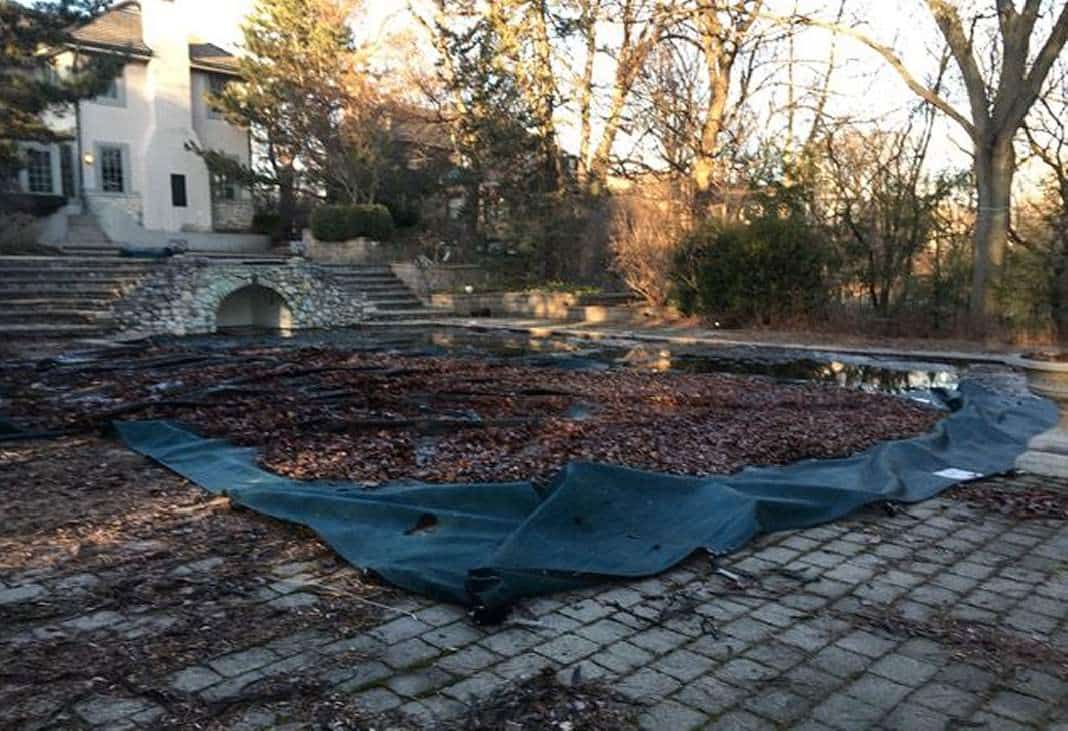
Accumulation of Precipitation
Vinyl Cover: One problematic characteristic of most vinyl covers is their tendency to accumulate rain, snow, and other precipitation forms. This can create a slimy mess if not promptly drained, pumped off, and poses a secondary drowning hazard for children, pets and wildlife.
Katchaleaf Cover: The Katchaleaf Debris Cover, made of a special blend of knitted polyethylene, is permeable, allowing rain, snow, and morning dew to pass through. This drastically reduces the risks associated with water accumulation and simplifies maintenance.
Durability and Environmental Impact
Vinyl Cover: Exposure to UV radiation and pool chemicals can degrade vinyl covers over time, leading to a shorter lifespan and unexpected replacement costs. Additionally, vinyl is not widely recyclable, contributing to landfill waste.
Katchaleaf Cover: Katchaleaf Debris Covers are resistant to UV light, chemicals, and are immune to insect damage. They are designed to offer long-lasting protection, and being recyclable, they are a more environmentally friendly choice.
Climate Compatibility
Vinyl Cover: Specifically designed to withstand the punishing winter conditions of snowbound northern states. Their robust construction can endure heavy snowfall and icy temperatures, offering essential protection against freeze-thaw cycles that could damage the pool. However, in sunbelt states where the winters are milder, the intense insulation these heavy vinyl covers provide is often unnecessary.
Katchaleaf Cover: More versatile option, providing adequate protection for both moderately severe and mild climates. Unlike the heavy vinyl covers, they’re lightweight and easy to handle, a major advantage in the warmer sunbelt states where the pool may see year-round use. Katchaleaf’s permeability to rain and snow prevents the build-up of precipitation, which is a common issue with vinyl covers. While vinyl covers have their benefits for harsh winter environments, the Katchaleaf Mesh Debris Cover provides a more flexible and user-friendly alternative for a broader range of climates.
Conclusion:
Mesh Pool Covers: The Lightweight Protector
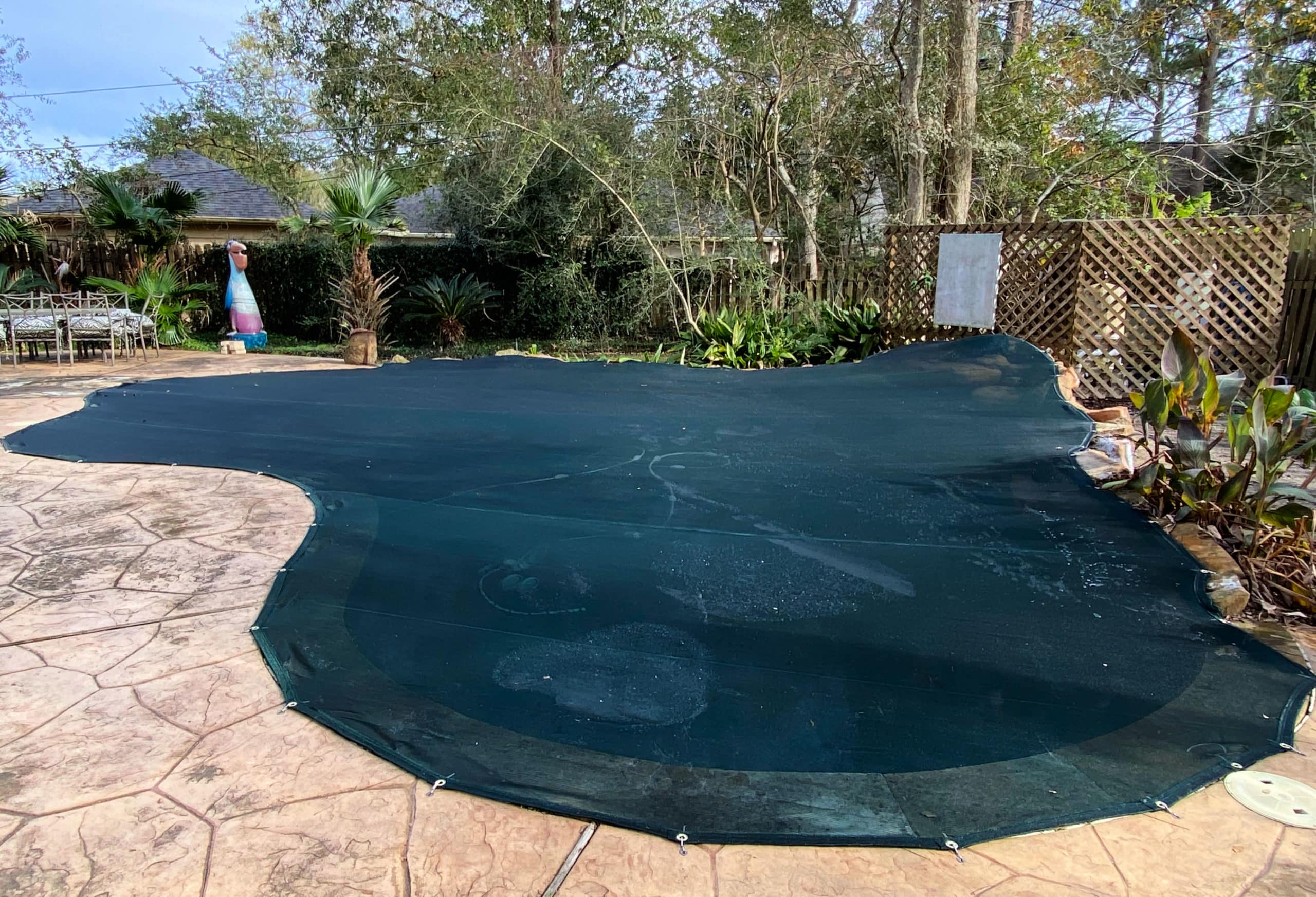
Mesh pool covers are a popular choice for their simplicity and practicality. Made from woven fabric, they’re designed to be permeable, allowing water from rainfall and melting snow to pass through into the pool while keeping out larger debris like leaves and twigs.
Key Features of Mesh Covers:
Lightweight and Easy to Handle: Mesh covers are lighter than their solid counterparts, making installation and removal a one-person job.
Reduced Maintenance: By allowing water to pass through, mesh covers eliminate the need for a cover pump to remove accumulated precipitation.
Durability and Strength: Despite their lightweight nature, mesh covers are durable and strong, making them suitable for long-term use.
Solid Pool Covers: The All-Weather Warrior
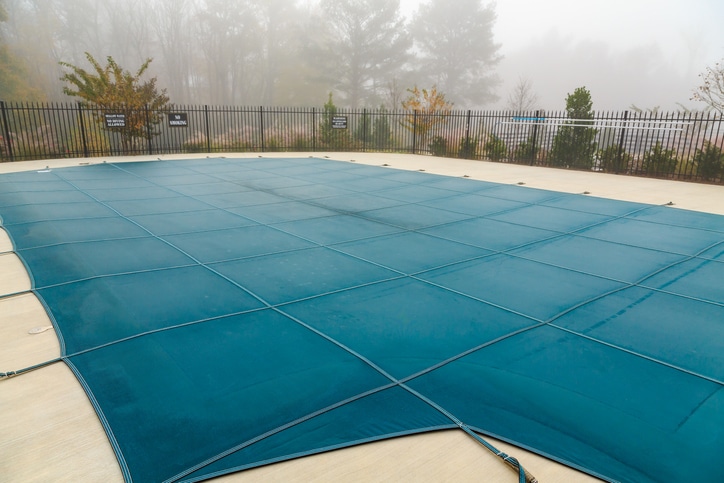
Solid pool covers are the traditional choice and offer an all-around weather-proof barrier. Made from vinyl or other impermeable materials, these covers form a solid shield over your pool, keeping out debris as well as water.
Key Features of Solid Covers:
Total Debris Blockage: Solid covers block all debris and sunlight, helping to reduce algae growth in the pool.
Winter-Proof: Solid covers are ideal for regions with harsh winters, as they can withstand heavy snowfall and freezing temperatures.
Chemical Conservation: By preventing rainwater and debris from entering the pool, solid covers help maintain the chemical balance of the pool water.
Making the Right Choice
Consider your local climate and the typical use of your pool when choosing between a mesh or solid pool cover. If you live in a region with mild winters and aim for simplicity and low maintenance, a mesh cover could be your perfect match. However, if you’re situated in an area with severe winters and you aim for complete coverage, a solid cover could be the right pick.
In the end, it’s about finding a pool cover that best fits your lifestyle and pool maintenance routine. Whether it’s the lightweight flexibility of the mesh pool cover or the all-weather defense of the solid pool cover, the perfect pool companion awaits you.


